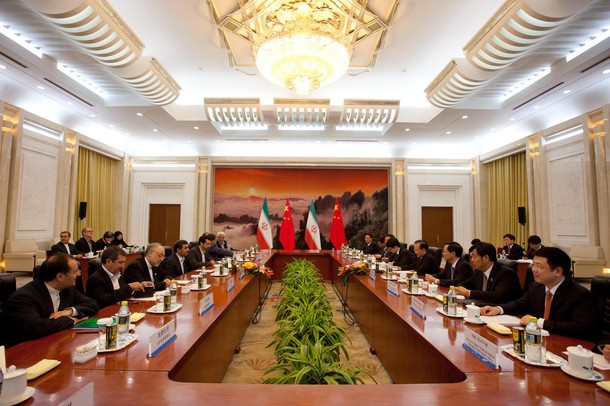Shanghai: Tehran’s Launching Platform to Moscow

MS: Regarding the issue of Putin’s review of Russian relations with the West, it must be pointed out that from Russia’s point of view, the West is divided in two parts: the European West, and the American West. Russia’s relations with Europe have always been different from their relations with the US. In particular, those who have tried to follow a more nationalistic policy have never been able to distance themselves from proper and balanced relations with Europe. Having good relations with Europe is a major issue for any Russian leader. Therefore, Putin’s view towards Europe follows the same trend. Even in an article he wrote during the presidential elections regarding his foreign policy, Putin considered Europe an important partner. And based on economic statistics, Europe is Russia’s trade partner; hence, it cannot be indifferent towards it. From a security aspect, Russia considers itself part of Europe. At the same time, the economic crisis and problems have a direct impact on Russia’s economy. Therefore, I believe that in parallel with possible tensions created in Russia--US relations, the relations between Europe and Russia will follow a more stable path.
ID: An agreement to strengthen strategic cooperation between Russia and the European Union was signed in this meeting. How stable, in your view, will this agreement be, considering Russia’s position regarding NATO and the Missile Defense Shield?
MS: As I said before, Russia’s relations with Europe, due to both economic and security reasons, are by nature strategic. But one of Russia’s problems, during different periods of time, has been the issue of NATO’s expansion to the East. Russians, however, do not define this matter within the framework of their relations with Europe. Although they used their relations with Europe in the issue of control and containment of the US plan for the establishment of the Missile Defense Shield, they have always tried to separate these relations from other issues and differences and manage them so that no problems will be created in this regard. Nonetheless, the main issue of Russia and Europe is the issue of economic links between both sides; the Europeans need Russia’s energy, and the Russians need economic cooperation with Europe. And both sides, from a security aspect, see themselves in an atmosphere which must have more cooperation in this regard. Due to these reasons, issues related to the Missile Defense Shield with NATO have not had a serious effect on relations between Russia and Europe; not so as to create tension.
ID: Some consider the issue of Syria as the most important challenge in Russia and EU relations and believe that this was the most significant matter of difference in this meeting. Will Europe’s efforts, in your view, to convince Russia to reduce its support of Bashar Assad be fruitful in this regard?
MS: I believe Russia’s positions regarding Syria are obvious and the Russians have transferred this issue to the Europeans. The Europeans are also aware of Russia’s concerns with regard to Syria. What is important for Russia is that the developments in Syria will change the strategic balance, in the end, to the benefit of the Western countries and Russia’s hands in the issue of Middle East politics will be practically tied, and it will prevent Russia from playing a role in the issue of Syria. But the Europeans’ concerns, more than the Americans, are issues related to human rights and humanitarian matters. These are subjects not denied by the Russians. And the Russians cooperated in the recent resolution regarding the condemnation of the massacre, mostly due to the fact that they feared being portrayed as a country supporting inhumane actions.
I believe that probably most of the differences between Russia and Europe on Syria are fundamental, mainly because they have different views on the issue and on the question of who is violating human rights in this country, while the difference between Russia and the US is more based on the difference of interests.
ID: Sergey Lavrov, Russia’s Foreign Minister, has met with Catherine Ashton, who is in charge of the EU’s foreign policy. Vladimir Putin, Russia’s President, has also visited China and is to meet with Mr. Ahmadinejad. What will we expect from Putin’s Russia regarding the Iranian nuclear issue?
MS: The future negotiations between Iran and the P5+1, to be held in Moscow, will be an opportunity for the Russians to not only introduce themselves as the mediator in international issues, but also as an arbiter and judge in this regard, and who can have direct impact. This is an opportunity for the Islamic Republic of Iran to use this matter and, through coordination with the Russians, enter the Moscow talks with a better hand. Considering meetings that will take place between high-ranking officials of the Islamic Republic, Russia, and China, the Shanghai Summit is also an opportunity for more coordination of policies and actions to achieve positive results in the Moscow talks.

